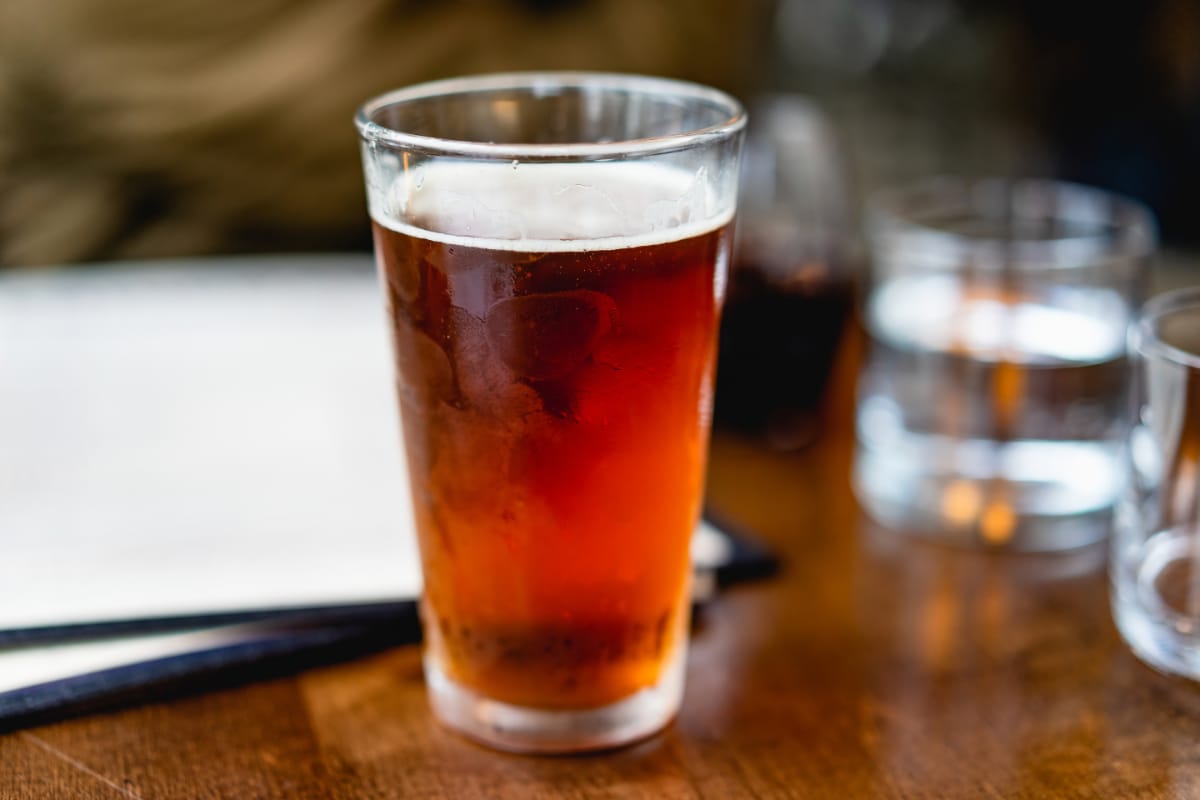What is the glycemic index of beer?
The glycemic index (GI) of beer is subject of a heated debate: The values you can find on various websites vary considerably. But what is the correct value? The answer is a lot more complex than you'd think.

Beers contain a varying amount of rapidly digestible carbohydrates, mainly starch, maltose and maltodextrins. During fermentation, the yeast breaks down most of the starch from the cereal variety used for production into smaller molecules (e.g. maltose) and converts them into alcohol. Most beers are rather low in carbohydrates – a glass only contains about 10 g. In order to understand where the conflicting data comes from, you have to take a closer look at the method of determining the glycemic index.
After fasting overnight test subjects have to consume a portion of a food or beverage that contains exactly 50 g of carbohydrates in a defined time span. In the example of beer they would have to drink 5 beers in 15 minutes on an empty stomach. As you can probably imagine, this is not practicable and the glycemic index can't be determined using this approach. The values you can find for beer are mostly estimations. Sometimes, you can find a GI of 110 for beer which is simply the value of plain maltose.
The high difficulty to obtain a reliable glycemic index for beer has led to some creative approaches. One idea was to use a smaller serving size with only 10 g of carbohydrates, extrapolating the value to 50 g. This method determined a GI of 66 for beer. However, this value is subject to uncertainty.
A new study from the University of Sydney compared 554.3 g of Pilsener to a glucose solution (GI 100) with the same amount of carbohydrates and determined a glycemic index of 89 by analyzing the blood sugar curves. We use this value in our app Natural Food Guide.
The glycemic index was intended to determine the glycemic properties of carbohydrate-rich foods – which beer is clearly not. Nevertheless, beer can have a significant impact on the total glycemic load of habitual drinkers. Therefore, it has to be categorized as a high glycemic food. To date, it is unclear whether the high glycemic impact is caused by the specific carbohydrate composition or if beer catalyzes the degradation of complex carbohydrates from other foods and indirectly causes the rise of blood sugar levels – further research is required to answer this question.
Back to blog
References:
C. Bamforth, Beer, Carbohydrates and Diet, J. Inst. Brew. 111(3), 259–264, 2005
D. Sluik et al., Contributors to the dietary glycaemic index and glycaemic load in the Netherlands: the role of beer, British Journal of Nutrition 115 (2016), 1218–1225
Image:
Photo by Dan Gold on Unsplash

Beers contain a varying amount of rapidly digestible carbohydrates, mainly starch, maltose and maltodextrins. During fermentation, the yeast breaks down most of the starch from the cereal variety used for production into smaller molecules (e.g. maltose) and converts them into alcohol. Most beers are rather low in carbohydrates – a glass only contains about 10 g. In order to understand where the conflicting data comes from, you have to take a closer look at the method of determining the glycemic index.
Determination of the glycemic index of beer
After fasting overnight test subjects have to consume a portion of a food or beverage that contains exactly 50 g of carbohydrates in a defined time span. In the example of beer they would have to drink 5 beers in 15 minutes on an empty stomach. As you can probably imagine, this is not practicable and the glycemic index can't be determined using this approach. The values you can find for beer are mostly estimations. Sometimes, you can find a GI of 110 for beer which is simply the value of plain maltose.
The high difficulty to obtain a reliable glycemic index for beer has led to some creative approaches. One idea was to use a smaller serving size with only 10 g of carbohydrates, extrapolating the value to 50 g. This method determined a GI of 66 for beer. However, this value is subject to uncertainty.
A new study from the University of Sydney compared 554.3 g of Pilsener to a glucose solution (GI 100) with the same amount of carbohydrates and determined a glycemic index of 89 by analyzing the blood sugar curves. We use this value in our app Natural Food Guide.
Beer has a high glycemic index
The glycemic index was intended to determine the glycemic properties of carbohydrate-rich foods – which beer is clearly not. Nevertheless, beer can have a significant impact on the total glycemic load of habitual drinkers. Therefore, it has to be categorized as a high glycemic food. To date, it is unclear whether the high glycemic impact is caused by the specific carbohydrate composition or if beer catalyzes the degradation of complex carbohydrates from other foods and indirectly causes the rise of blood sugar levels – further research is required to answer this question.
Do you want to learn more about the glycemic index of your food?
 Our app "Natural Food Guide" has all the information you need. Check it out on the App Store!
Our app "Natural Food Guide" has all the information you need. Check it out on the App Store!
Share article
Share article
Back to blog
References:
C. Bamforth, Beer, Carbohydrates and Diet, J. Inst. Brew. 111(3), 259–264, 2005
D. Sluik et al., Contributors to the dietary glycaemic index and glycaemic load in the Netherlands: the role of beer, British Journal of Nutrition 115 (2016), 1218–1225
Image:
Photo by Dan Gold on Unsplash
![[Blog]](../../rw_common/images/baliza_logo_retina.png)
